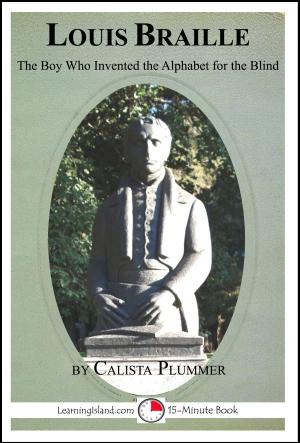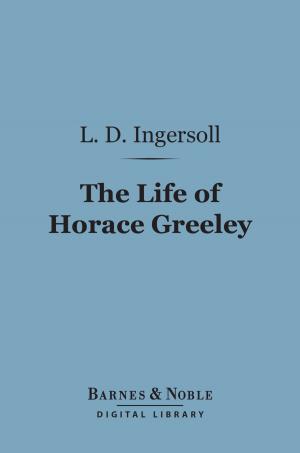| Author: | Stephan Politzer | ISBN: | 9781458089908 |
| Publisher: | Stephan Politzer | Publication: | June 20, 2011 |
| Imprint: | Smashwords Edition | Language: | English |
| Author: | Stephan Politzer |
| ISBN: | 9781458089908 |
| Publisher: | Stephan Politzer |
| Publication: | June 20, 2011 |
| Imprint: | Smashwords Edition |
| Language: | English |
The parallel lives of Edward I and Andrew Jackson, William Wallace and Osceola, Theodore Roosevelt and John F. Kennedy and Abraham Lincoln and Alexander II of Russia are inaugural essays in what will be a series of essays paralleling the lives of significant people. The major inspiration for this project is Plutarch’s Lives, also known as Parallel Lives, written in Greek around 100 C.E. Its surviving text consists of twenty-three paired Greek and Roman biographies, plus four unpaired lives. Mestrius Plutarchus (45-125 C.E.), Priest of the Delphic Oracle, wrote his Lives of famous Greeks and Romans initially for an educated lay audience, an elite in his time. His short biographies represent both popular history and moral instruction. Plutarch’s style is consistent throughout: Short histories of two famous personages (generally a Greek and a Roman) and then their lives compared. The comparison is in essence a moral lesson. Plutarch was interested in how the characters of great men (not women) influenced their actions and played on the destinies of civilizations. Our intent is similar to Plutarch’s (our future parallel lives will include women) but our approach is considerably different. Since, unlike in Plutarch’s time, capsule biographies are readily available in any number of easily obtained publications and on the Internet, we eschew them and launch directly into parallel comparisons of our subjects’ lives. We share with Plutarch the desire to write for an educated lay audience but for one that is far more expansive than it was in Plutarch’s time. To this end, we have attempted to keep our writing style conversational and to use only those references that can be found readily in public libraries, bookstores and on the Internet. We have not and will not delve into special collections and other closed or reserved sources. The bulk of our sources have come from the Internet. Anyone can check our sources either at their local public library or on the Internet, papyrus of the twenty-first century. In this regard, we must make a small comment on notation. Since Wikipedia is commonly known to be online, we will not cite it as so when referencing it in the four essays.
Like Plutarch, we are not strictly writing either history or biography. We are writing “moral lessons” in the broadest sense of the expression. Our lessons more than Plutarch’s are open-ended.
The parallel lives of Edward I and Andrew Jackson, William Wallace and Osceola, Theodore Roosevelt and John F. Kennedy and Abraham Lincoln and Alexander II of Russia are inaugural essays in what will be a series of essays paralleling the lives of significant people. The major inspiration for this project is Plutarch’s Lives, also known as Parallel Lives, written in Greek around 100 C.E. Its surviving text consists of twenty-three paired Greek and Roman biographies, plus four unpaired lives. Mestrius Plutarchus (45-125 C.E.), Priest of the Delphic Oracle, wrote his Lives of famous Greeks and Romans initially for an educated lay audience, an elite in his time. His short biographies represent both popular history and moral instruction. Plutarch’s style is consistent throughout: Short histories of two famous personages (generally a Greek and a Roman) and then their lives compared. The comparison is in essence a moral lesson. Plutarch was interested in how the characters of great men (not women) influenced their actions and played on the destinies of civilizations. Our intent is similar to Plutarch’s (our future parallel lives will include women) but our approach is considerably different. Since, unlike in Plutarch’s time, capsule biographies are readily available in any number of easily obtained publications and on the Internet, we eschew them and launch directly into parallel comparisons of our subjects’ lives. We share with Plutarch the desire to write for an educated lay audience but for one that is far more expansive than it was in Plutarch’s time. To this end, we have attempted to keep our writing style conversational and to use only those references that can be found readily in public libraries, bookstores and on the Internet. We have not and will not delve into special collections and other closed or reserved sources. The bulk of our sources have come from the Internet. Anyone can check our sources either at their local public library or on the Internet, papyrus of the twenty-first century. In this regard, we must make a small comment on notation. Since Wikipedia is commonly known to be online, we will not cite it as so when referencing it in the four essays.
Like Plutarch, we are not strictly writing either history or biography. We are writing “moral lessons” in the broadest sense of the expression. Our lessons more than Plutarch’s are open-ended.















